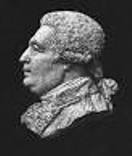Dennis O’Kelly – The Man behind Eclipse
Dennis O’Kelly was born around 1720, a legitimate son of Philip O’Kelly of Tullow in County Carlow, Ireland.
To get away from his family’s frugal existence, he came to London at the age of 25 in the hope of improving his situation.
Described by a contemporary, O’Kelly was:“A short, thick-set, dark, harsh-visaged and ruffian-looking fellow”, yet with “the ease, the agremens, the manners of a gentleman and the attractive quaintness of a humorist. “
Another witness added:
“His voice, the very reverse of melody, not only assailed , but wounded the ear . . .the broadest and most offensive brogue his nation ever produced.”
In due course, O’Kelly, already an opportunist, found work as a sedan chairman and from this station slowly made inroads into society. It is recorded that, on the occasion of George II’s birthday reception, he carried Lady Blank from the top of St James’s Street to the Palace for a guinea, and was later employed by her as a regular chairman. But as O’Kelly’s fortune ebbed and flowed, we next hear of him as a billiards marker in a smart London club, from where gambling led him to Fleet Prison for debt. In prison, he scratched a living by carrying beer to the inmates; for this, together with his jovial manner, the elected ‘King’ of the prisoners gave him the courtesy title of ‘Count’.
Whilst in the Fleet, O’Kelly met up with Charlotte Hayes, a woman with a notorious reputation. Together they formed a relationship that wove itself into society, providing O’Kelly with a network of contacts throughout the racing world.
The death of George II in London on 25 October, 1760, saw Dennis and Charlotte pardoned from their sentences and, soon after their release, with financial support from Charlotte, he purchased an ensigncy in the Westminster Regiment of the Middlesex Militia. Through courage and initiative, O’Kelly gradually worked his way up to Lieutenant-Colonel, and to celebrate his new rank he put on a ‘splendid entertainment’, attended by Lord Derby and many of the nobility of Lancashire.
In time, the success of Eclipse at stud profited Dennis O’Kelly in excess of £25,000. This enabled him in later years to live a life of style, either entertaining friends at his Cannons Park estate at Stanmore, Middlesex, (previously owned by the Duke of Chandos), or at his stables and stud at Clay Hill, near Epsom.
It was at Clay Hill Stud that he stood Eclipse and two of his sons, Dungannon and Volunteer. In addition he kept around 50 mares, including the famous Tartar mare, who when put to Eclipse produced ten chestnut foals: five colts, including Mercury and Volunteer, and five fillies including Queen Mab.
O’Kelly also kept a house at the corner of Half-Moon Street and Piccadilly; in later years this became the home of Charlotte Hayes in the company of O’Kelly’s celebrated parrot “Polley” .
Hatched in Bristol, “Polley”, was the first parrot born in Britain. It cost O’Kelly 50 guineas and was reported by an eye witness to “not only repeat everything it was commanded, but it would answer many questions, which appeared to require a higher degree of perception “. As well as this, it could on request, ‘sing a variety of tunes with exquisite melody ‘. Listed in the Dictionary of National Biography it reported that it “whistled the 104th Psalm and was among parrots what Eclipse was among racehorses “.
Polley, a constant source of amusement to visitors to Half-Moon Street, died in October 1802, from “a purging and Bloody Flox”. It was later stuffed, returned to Half-Moon Street and, continued to be visited as a curio.
Dennis O’Kelly died of gout on 28 December, 1787, at his house in Piccadilly. Charlotte Hayes assumed the name of Mrs O’Kelly and lived to the age of 85.
Racing in the 18th century was far from straight and according to a contemporary historian it was only O’Kelly’s hard work and concentration that,“enabled him to counteract the various and almost incredible deceptions then in constant practice in the sporting world”.
Moreover, his anticipation and perception of events were frequently referred to as “the luck of the Irish”. However, for all his success , Dennis O’Kelly carried one grievance to the grave – the continual refusal of the Jockey Club to admit him as a member. The prejudice against him must have been very strong, for almost any other top society owner of a horse as great as Eclipse would have been welcomed. Nor did it stop there, for many of the nobility and gentry preferred to take their mares to Herod, rather than deal in “the rough and ready ways” of O’Kelly for the services of Eclipse. In consequence, Eclipse was never Champion Sire, although he was second 11 times between 1778 and 1788 inclusive.
Eclipse died of colic at Cannons, in Middlesex, on 27 February, 1789.
No racehorse has achieved greater fame or left a more lasting legacy. Now, more than two and a quarter centuries after his death, 97% of all modern thoroughbreds trace back to him in male line.
Whatever the failings of Dennis O’Kelly, the ongoing world of racing and breeding owes him a tremendous debt. His management of Eclipse’s racing and stud career were handled with both wisdom and patience, sometimes in difficult circumstances.
Now, 235 years after his death, his name is still mentioned in the same breath as the legend of the horse he once owned .
For more racing history see Michael’s Books for Sale.
